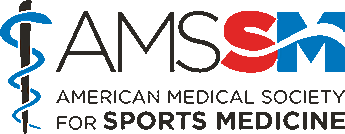 Background Epilepsy is a neurological disorder that is marked by sudden and recurrent episodes of sensory disturbances, loss of consciousness or convulsions, commonly referred to as seizures. It can affect people of all ages and many athletes and their families may find themselves asking, “Can I still participate in sports and physical activities if I have epilepsy or have had seizures?” The answer is yes! With proper precautions and monitoring, participation in athletics and regular physical activity is safe and may even be beneficial for athletes with epilepsy. Symptoms/Risks As mentioned above, epilepsy is marked by episodes of sensory disturbances, loss of consciousness or convulsions. Seizures come in many shapes and sizes. Some are associated with convulsions or shaking movements, while others may be associated with sleepiness or staring spells. It is important to see a doctor if you have had any of these episodes and have not been diagnosed with epilepsy or a seizure disorder. Overall, there is little evidence to suggest that contact sports increase seizure risk or are harmful to most athletes with epilepsy. In fact, regular participation in physical activities and sport may improve physical and psychosocial outcomes for athletes with seizure disorders or epilepsy. Current evidence suggests that seizure activity may even be reduced among those athletes who regularly engage in aerobic activity. Sports Medicine Evaluation and Treatment Before you or your child engages in physical activity or sport, you should consider evaluation by a sports medicine physician. This doctor will take an in-depth history to better understand the risks associated with you or your child’s seizure disorder. For instance, they will identify which types of seizures are present (as there are many), which risk factors are associated with the onset of seizures, as well as which risks are associated with the specific sport or physical activity being performed. Your doctor will also likely help you come up with a “Seizure Action Plan”, a pre-planned set of responses to take if you experience a seizure during physical activity, which may include prescription medicine or instructions for the coach, administrator or others who may be present. As mentioned above, most sports and activities are safe for athletes with seizure disorders or epilepsy. However, every athlete and every activity is unique, and it is very important to speak with a sports medicine specialist before engaging in sport. Injury Prevention It is true that most sports and activities are safe for athletes with epilepsy or seizure disorder, but there are certain precautions that should be taken and specific activities that should be avoided. Precautions: • Have a Seizure Action Plan prepared in case of a seizure during participation. • If performing activities such as swimming, weightlifting or cross country running, you should always have a partner or exercise buddy. • Always wear a helmet when performing an activity or sport with wheels or an increased risk of head trauma. Prohibited Activities* • Scuba diving, free diving or open water swimming without supervision • Sky diving or hang-gliding • Free climbing (rock climbing without ropes) • Obtaining a pilot’s license Discouraged with Active Epilepsy • Motor sports • Equestrian sports • Certain gymnastic events (such as horizontal or uneven bars, beam and rings) • Rock climbing • Shooting sports *These activities are too dangerous to participate in for any athlete with a history of seizure or epilepsy. Return to Play Return to play or initiation of sport or activity should always be discussed with your doctor or sports medicine specialist before starting or re-initiating. They will discuss the risks associated with each specific activity and the safety precautions to take prior to and during each activity or sport. AMSSM Member Authors References Category: Neurology, [Back] |

